Fighting resumes in South Ossetia
Despite announcements of a ceasefire agreement, clashes are ongoing in South Ossetia and Georgia.
Monday, 11.08.2008.
09:31

Despite announcements of a ceasefire agreement, clashes are ongoing in South Ossetia and Georgia. That attempts to broker a truce were not successful in the field became evident this afternoon as the fighting continued. Fighting resumes in South Ossetia Reuters says six Georgian helicopters attacked the South Ossetian capital of Tskhinvali and several targets on the border of the this territory and Georgia. Georgian soldiers yesterday withdrew from the region. Russian and South Ossetian sources confirmed the news. They added that the Grad missile system was once again used to assault Tskhinvali. South Ossetian assembly Speaker Znaur Gassiev said that while artillery fire can be heard near the town, there were no attempts on the part of the Georgians to reoccupy with infantry and armor. At the same time, Georgian President Micheil Saakashvili was quoted as saying that while he "strives for peace, the Georgian army will continue to fight". "Georgia is not at war with the Russians but we will protect the fatherland until the last drop of blood," he said. The comments came after it was announced Saakashvili had signed a ceasefire agreement, brought to him by the French and Finnish FMs. But the document is yet to be taken to Moscow, where Bernard Kouchner and Alexander Stubb are headed today. The French foreign minister said Saakashvili accepted "almost all the proposals" taken to him, "in order for peace to return and civilians to be protected". Kouchner revealed that the document contained measures to introduce a truce, help those affected by the fighting, while both Russia and Georgia, engaged in a war over South Ossetia, are expected to withdraw their troops, "which would require observers". Another provision of the proposed peace agreement would be a return to the political process "mediated by the EU and OSCE and perhaps the UN". Although the AP reports this afternoon that Russian armored vehicles "rolled deep into western Georgia on Monday, quickly seizing several towns and a military base and slicing open a damaging second front in Russia's battle with Georgia", while "other Russian forces captured the key central city of Gori", Russia has denied taking the Georgian town that has been the target of air raids for the past several days. In Moscow, Russian President Dmitry Medvedev was quoted on Monday as saying that Russian operations in South Ossetia were mostly completed. "A major part of operations to force the Georgian side, the Georgian authorities, into peace in South Ossetia has been completed," AFP quotes reports citing Medvedev as saying at a meeting with Defense Minister Anatoly Serdyukov. Earlier today, reports said Georgia continued to attack Tskhinvali despite the announced ceasefire, while Russian jets carried our air strikes against targets near Tbilisi. "In some zones in which Russian soldiers keep the peace close to Tskhinvali there have been active clashes," said the commander of the Russian peacekeepers in the area, General Murat Kukhalmetov. He specified that Georgian troops continued to shell Russian positions, while one came under attack from the Georgian air force. The South Ossetian authorities said this morning three Russian soldiers died in the clashes last night, while 18 were wounded. At the same time, Russian warplanes stuck several targets close to the Georgian capital of Tbilisi, this country has announced. The Georgian Interior Ministry said an army base and radar facilities came under attack, but that there were no known casualties. In the meantime, Russia has strengthened its military presence in Georgia's second breakaway region of Abkhazia, where it currently holds 9,000 soldiers and 350 armored vehicles. At the same time, Russian commanders on the ground have denied the build up was in preparation for an escalation on this front, and said the troops were there in order to avoid the situation faced by the peacekeepers in South Ossetia early in the conflict that broke out last week. The U.S. has strongly criticized Russian military action against Georgia as fighting continued over South Ossetia, the BBC reports this morning. President George Bush said he had frank discussions with Russian PM Vladimir Putin at the Olympics. "I said this violence is unacceptable. I was very firm with Vladimir Putin. Hopefully this will get resolved peacefully," he said. However, in a telephone call to Georgian President Mikhail Saakashvili, the U.S. Vice-President, Dick Cheney, said Russian aggression "must not go unanswered". The UNHCR currently estimates that between 10,000 and 20,000 people have been displaced within Georgia, including South Ossetia, while Russia has said that a further 30,000 people have fled north into the Russian province of North Ossetia. Based on Russian and South Ossetian estimates on Sunday, the death toll on the South Ossetian side was at least 1,500, mostly civilians. Georgian casualty figures ranged from 82 dead, including 37 civilians, to a figure of about 130 dead. The fighting broke out last Friday after Georgia attacked South Ossetia in a bid to reclaim the breakaway region, provoking a Russian counter-offensive. Russian troops in South Ossetia (FoNet) "Magnitude of cynicism" Prime Minister Vladimir Putin today addressed the Russian government's presidency in a speech described by reports from Moscow as "emotional", to say that Russia had warned its western partners that the Georgian side was "preparing for aggression in order to solve this old conflict with the use of arms". "Nobody listened, and here's the result. They have lived to see it. Still, Russia will bring its peace mission to a logical conclusion," Putin said, at the same time slamming Washington's support for Georgia as a manifestation of a Cold War mentality. He mentioned that the U.S. was helping Tbilisi brings its troops back from Iraq. "It's shameful that some of our partners are not helping us, but are, in essence, impeding us. The sheer magnitude of this cynicism is astonishing – an attempt to turn white into black, black into white, to portray victims of this aggression as aggressors, and to pin the blame for the consequences of the aggression on the victims," Putin said in a televised meeting. Putin in Vladikavkaz, North Ossetia, over the weekend (Beta) "Recognize South Ossetia and Abkhazia" Georgia's breakaway republic of Abkhazia told Georgia on Monday that if its troops fail to leave the strategic Kodori Gorge, separatist forces will begin a full-scale onslaught to force them out, RIA Novosti reported. Abkhazia's pro-Russian leadership pledged on Sunday to oust Georgian forces from the northern part of the gorge, the only part of the province still controlled by Georgia, two days after Georgia began a ground and air offensive in its other separatist republic, South Ossetia. "We will begin an operation to force out all Georgia's security forces located there. This will be a combat operation with the employment of all our military's armaments," Abkhaz President Sergei Bagapsh said in an interview with the Russian TV channel Vesti. Earlier, Bagapsh said that after the tragedy in South Ossetia, the international community should recognize the independence of the Georgian regions of South Ossetia and Abkhazia, which broke away from that country in the early 1990s. “I am convinced that after this tragedy, the international community will have to recognize the independence of South Ossetia and Abkhazia,” he said, adding that the people of these two unrecognized de facto independent republics have chosen their roads – the road of independent states. Bagapsh said that actions of Georgia in South Ossetia cannot be characterized as anything but genocide against the Ossetian people. “I think that after these tragic events, no one in the world can harbor the illusions that Abkhazia and South Ossetia can exist with Georgia in one country,” the president of Abkhazia said. "Remember Serbia" NATO has agreed to an emergency meeting of the NATO-Russia Council to be held on Tuesday to discuss the situation in South Ossetia, the Russian mission to NATO said on Monday, RIA Novosti reported. Earlier, Moscow responded to western criticism of its actions in the Caucasus by referring to the 1999 NATO bombing of Serbia. "A statement by NATO on excessive use of force in South Ossetia is forcing us to remember the NATO operation against Serbia," Russia's permanent representative to NATO in Brussels Dmitry Rogozin stated late on Sunday. "Russia does not intend to listen to such evaluations by this military bloc, because it will have to remind them of the proportional force used against the people and armed forces of Serbia, when NATO tried to bring to the country the 'treasures of democracy' by bombing Belgrade, destroying towns, bridges and infrastructure in Serbia," the statement continued. Rogozin went on to say that his country is, however, "ready to hear out opinions of human rights organizations, whose main task, even if they did not know what was actually happening in the conflict zone, should be protection of humanitarian values", Itar-Tass reported. "In South Ossetia, Russia is operating within the framework of self-defense, protecting its peacekeepers and civilian population from the aggressor, who is threatening the lives and security of peaceful citizens," the statement said.
Fighting resumes in South Ossetia
Reuters says six Georgian helicopters attacked the South Ossetian capital of Tskhinvali and several targets on the border of the this territory and Georgia.Georgian soldiers yesterday withdrew from the region.
Russian and South Ossetian sources confirmed the news.
They added that the Grad missile system was once again used to assault Tskhinvali.
South Ossetian assembly Speaker Znaur Gassiev said that while artillery fire can be heard near the town, there were no attempts on the part of the Georgians to reoccupy with infantry and armor.
At the same time, Georgian President Micheil Saakashvili was quoted as saying that while he "strives for peace, the Georgian army will continue to fight".
"Georgia is not at war with the Russians but we will protect the fatherland until the last drop of blood," he said.
The comments came after it was announced Saakashvili had signed a ceasefire agreement, brought to him by the French and Finnish FMs.
But the document is yet to be taken to Moscow, where Bernard Kouchner and Alexander Stubb are headed today.
The French foreign minister said Saakashvili accepted "almost all the proposals" taken to him, "in order for peace to return and civilians to be protected".
Kouchner revealed that the document contained measures to introduce a truce, help those affected by the fighting, while both Russia and Georgia, engaged in a war over South Ossetia, are expected to withdraw their troops, "which would require observers".
Another provision of the proposed peace agreement would be a return to the political process "mediated by the EU and OSCE and perhaps the UN".
Although the AP reports this afternoon that Russian armored vehicles "rolled deep into western Georgia on Monday, quickly seizing several towns and a military base and slicing open a damaging second front in Russia's battle with Georgia", while "other Russian forces captured the key central city of Gori", Russia has denied taking the Georgian town that has been the target of air raids for the past several days.
In Moscow, Russian President Dmitry Medvedev was quoted on Monday as saying that Russian operations in South Ossetia were mostly completed.
"A major part of operations to force the Georgian side, the Georgian authorities, into peace in South Ossetia has been completed," AFP quotes reports citing Medvedev as saying at a meeting with Defense Minister Anatoly Serdyukov.
Earlier today, reports said Georgia continued to attack Tskhinvali despite the announced ceasefire, while Russian jets carried our air strikes against targets near Tbilisi.
"In some zones in which Russian soldiers keep the peace close to Tskhinvali there have been active clashes," said the commander of the Russian peacekeepers in the area, General Murat Kukhalmetov.
He specified that Georgian troops continued to shell Russian positions, while one came under attack from the Georgian air force.
The South Ossetian authorities said this morning three Russian soldiers died in the clashes last night, while 18 were wounded.
At the same time, Russian warplanes stuck several targets close to the Georgian capital of Tbilisi, this country has announced.
The Georgian Interior Ministry said an army base and radar facilities came under attack, but that there were no known casualties.
In the meantime, Russia has strengthened its military presence in Georgia's second breakaway region of Abkhazia, where it currently holds 9,000 soldiers and 350 armored vehicles.
At the same time, Russian commanders on the ground have denied the build up was in preparation for an escalation on this front, and said the troops were there in order to avoid the situation faced by the peacekeepers in South Ossetia early in the conflict that broke out last week.
The U.S. has strongly criticized Russian military action against Georgia as fighting continued over South Ossetia, the BBC reports this morning.
President George Bush said he had frank discussions with Russian PM Vladimir Putin at the Olympics.
"I said this violence is unacceptable. I was very firm with Vladimir Putin. Hopefully this will get resolved peacefully," he said.
However, in a telephone call to Georgian President Mikhail Saakashvili, the U.S. Vice-President, Dick Cheney, said Russian aggression "must not go unanswered".
The UNHCR currently estimates that between 10,000 and 20,000 people have been displaced within Georgia, including South Ossetia, while Russia has said that a further 30,000 people have fled north into the Russian province of North Ossetia.
Based on Russian and South Ossetian estimates on Sunday, the death toll on the South Ossetian side was at least 1,500, mostly civilians. Georgian casualty figures ranged from 82 dead, including 37 civilians, to a figure of about 130 dead.
The fighting broke out last Friday after Georgia attacked South Ossetia in a bid to reclaim the breakaway region, provoking a Russian counter-offensive.
"Magnitude of cynicism"

"Nobody listened, and here's the result. They have lived to see it. Still, Russia will bring its peace mission to a logical conclusion," Putin said, at the same time slamming Washington's support for Georgia as a manifestation of a Cold War mentality.
He mentioned that the U.S. was helping Tbilisi brings its troops back from Iraq.
"It's shameful that some of our partners are not helping us, but are, in essence, impeding us. The sheer magnitude of this cynicism is astonishing – an attempt to turn white into black, black into white, to portray victims of this aggression as aggressors, and to pin the blame for the consequences of the aggression on the victims," Putin said in a televised meeting.
"Recognize South Ossetia and Abkhazia"
Georgia's breakaway republic of Abkhazia told Georgia on Monday that if its troops fail to leave the strategic Kodori Gorge, separatist forces will begin a full-scale onslaught to force them out, RIA Novosti reported.Abkhazia's pro-Russian leadership pledged on Sunday to oust Georgian forces from the northern part of the gorge, the only part of the province still controlled by Georgia, two days after Georgia began a ground and air offensive in its other separatist republic, South Ossetia.
"We will begin an operation to force out all Georgia's security forces located there. This will be a combat operation with the employment of all our military's armaments," Abkhaz President Sergei Bagapsh said in an interview with the Russian TV channel Vesti.
Earlier, Bagapsh said that after the tragedy in South Ossetia, the international community should recognize the independence of the Georgian regions of South Ossetia and Abkhazia, which broke away from that country in the early 1990s.
“I am convinced that after this tragedy, the international community will have to recognize the independence of South Ossetia and Abkhazia,” he said, adding that the people of these two unrecognized de facto independent republics have chosen their roads – the road of independent states.
Bagapsh said that actions of Georgia in South Ossetia cannot be characterized as anything but genocide against the Ossetian people.
“I think that after these tragic events, no one in the world can harbor the illusions that Abkhazia and South Ossetia can exist with Georgia in one country,” the president of Abkhazia said.
"Remember Serbia"
NATO has agreed to an emergency meeting of the NATO-Russia Council to be held on Tuesday to discuss the situation in South Ossetia, the Russian mission to NATO said on Monday, RIA Novosti reported.Earlier, Moscow responded to western criticism of its actions in the Caucasus by referring to the 1999 NATO bombing of Serbia.
"A statement by NATO on excessive use of force in South Ossetia is forcing us to remember the NATO operation against Serbia," Russia's permanent representative to NATO in Brussels Dmitry Rogozin stated late on Sunday.
"Russia does not intend to listen to such evaluations by this military bloc, because it will have to remind them of the proportional force used against the people and armed forces of Serbia, when NATO tried to bring to the country the 'treasures of democracy' by bombing Belgrade, destroying towns, bridges and infrastructure in Serbia," the statement continued.
Rogozin went on to say that his country is, however, "ready to hear out opinions of human rights organizations, whose main task, even if they did not know what was actually happening in the conflict zone, should be protection of humanitarian values", Itar-Tass reported.
"In South Ossetia, Russia is operating within the framework of self-defense, protecting its peacekeepers and civilian population from the aggressor, who is threatening the lives and security of peaceful citizens," the statement said.










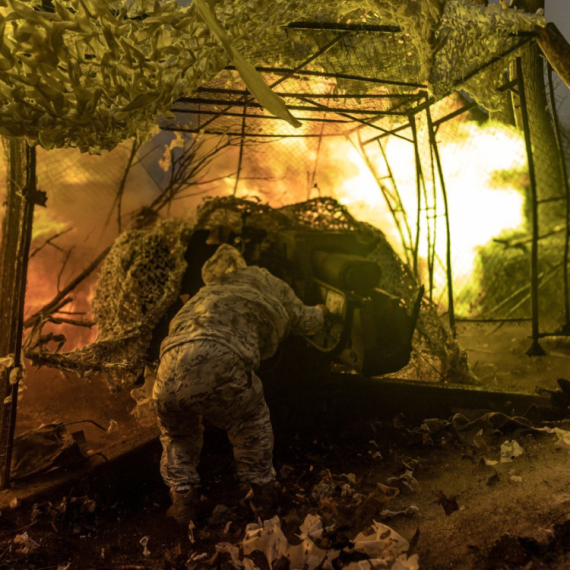
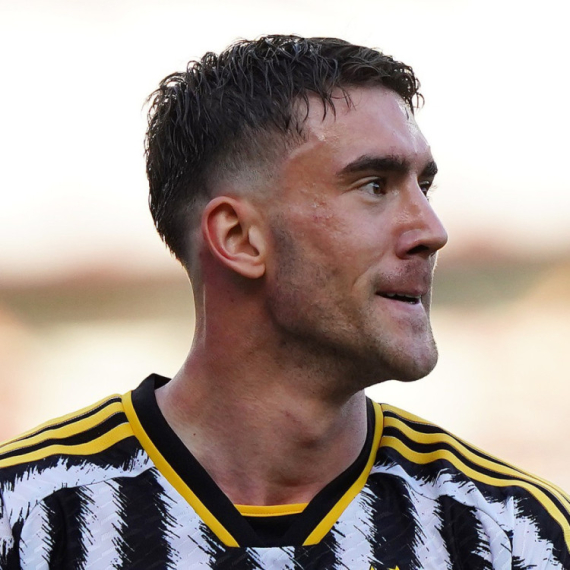


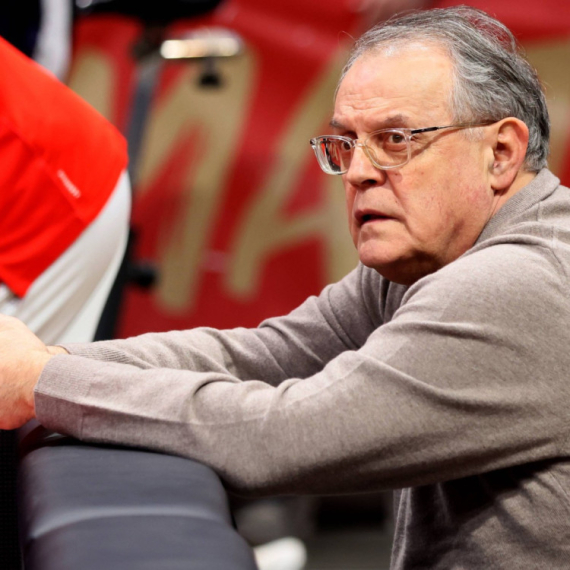
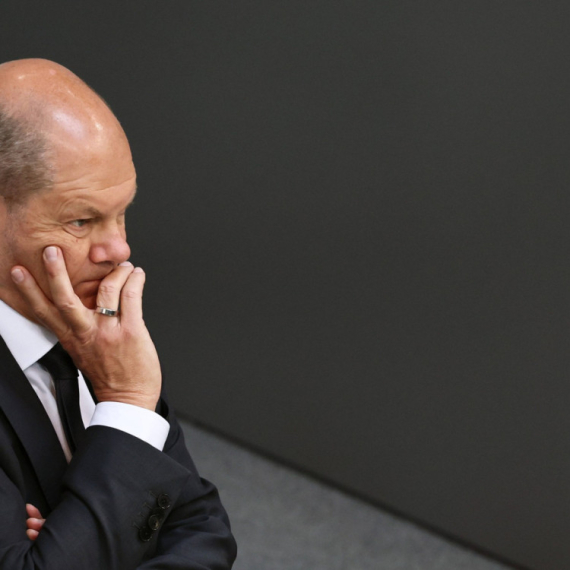
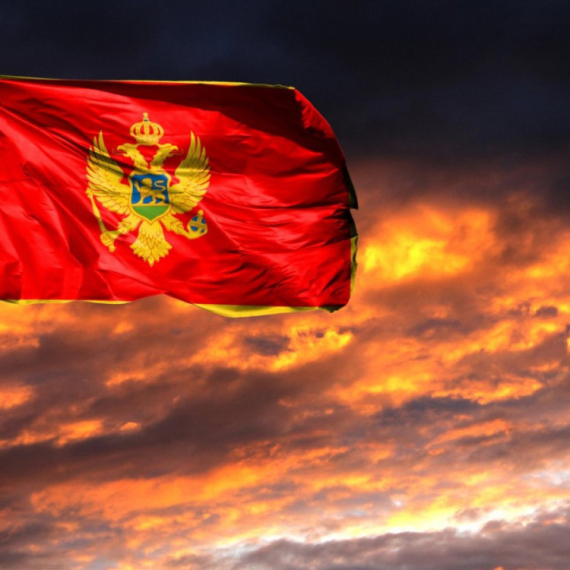
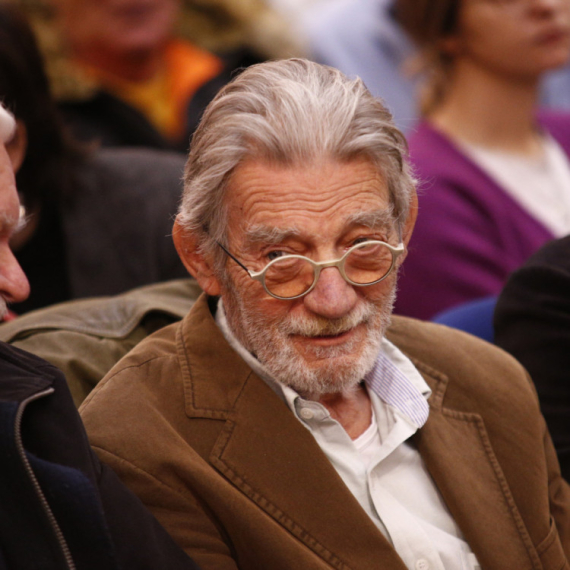
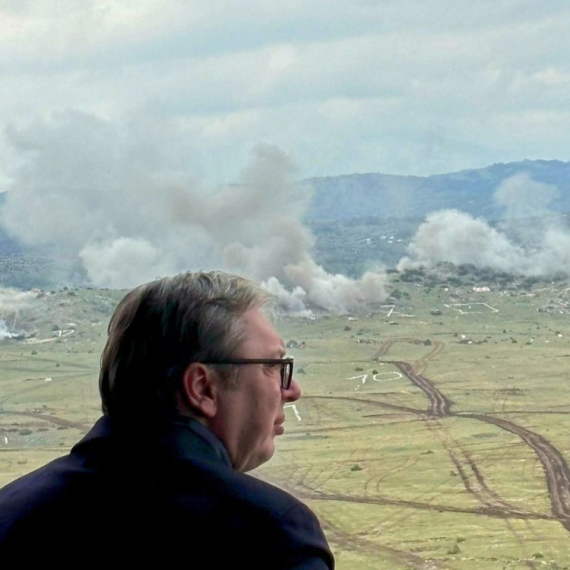








































Komentari 37
Pogledaj komentare